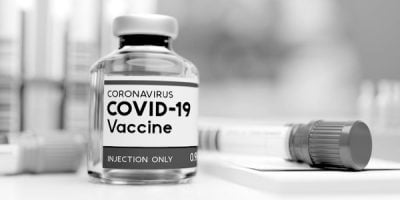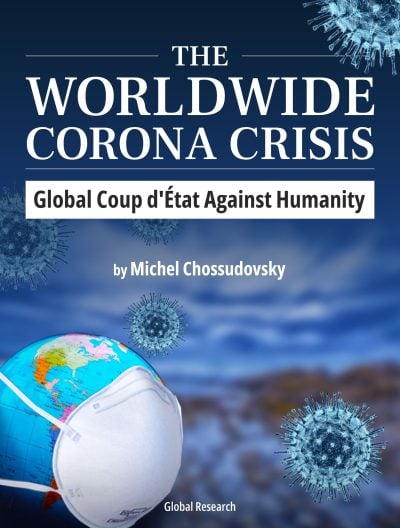COVID and Free Speech in the High Court

All Global Research articles can be read in 51 languages by activating the Translate Website button below the author’s name.
To receive Global Research’s Daily Newsletter (selected articles), click here.
Click the share button above to email/forward this article to your friends and colleagues. Follow us on Instagram and Twitter and subscribe to our Telegram Channel. Feel free to repost and share widely Global Research articles.
***
On 5 April 2023 the [U.K.] High Court handed down judgment in Adil v General Medical Council [2023] EWHC 797 (Admin). The case examined the extent to which a professional regulator can interfere with the right to freedom of expression of an individual subject to its regulation, as well as the circumstances in which the Court should accept challenges to decisions made by regulators in the performance of their duties. It is the first case decided by the [UK] High Court concerning anti-vaccination statements made by a doctor in relation to the COVID-19 pandemic, and the actions of the General Medical Council (“GMC”) in response.
Factual Background
Mr Adil is a consultant colorectal surgeon. Over the course of the COVID-19 pandemic, he posted multiple videos on social media in which he, amongst other things, made statements to the effect that:
- COVID-19 did not exist;
- the pandemic was a conspiracy brought about by the United Kingdom, Israel and America;
- the pandemic was a scam which was being manipulated for the benefit of Bill Gates and pharmaceutical companies;
- Bill Gates infected the entire world with COVID-19 in order to sell vaccines; and
- COVID-19 vaccines would be given to everyone, by force if necessary, and could potentially contain microchips that affect the human body.
In these videos Mr Adil made it known that he was a doctor working in the UK.
The GMC brought regulatory proceedings against Mr Adil on the basis that these statements:
- undermined public health;
- were contrary to widely accepted medical opinion; and/or
- undermined public confidence in the medical profession.
His case was heard by the Medical Practitioners Tribunal (“the Tribunal”) in June 2022. It found that the statements were made as alleged, that in doing so Mr Adil was guilty of misconduct which in turn gave rise to an impairment of his ability to practise medicine, and that a six-month immediate suspension of his registration was appropriate.
Grounds of Appeal
Mr Adil appealed to the High Court. He advanced five grounds of appeal, which focussed primarily on whether the Tribunal’s decision was consistent with his right to freedom of expression under Article 10 of the European Convention on Human Rights. The grounds can be summarised as follows:
Ground 1 was that the conclusions on misconduct and impairment were contrary to Article 10(1), ECHR because they represented an interference with his Article 10 rights that was not “prescribed by law”;
Ground 2 was that the conclusions on misconduct and impairment were a disproportionate interference with his Article 10 rights;
Grounds 3 and 4 were in effect further extensions of ground 2. Ground 3 was that the Tribunal was wrong to conclude that expressing views “outside widely accepted medical opinion” amounted to misconduct or provided a justification for interference with Mr Adil’s right to freedom of expression. Ground 4 was that there was no evidence to support the conclusion that his comments had damaged the reputation of the medical profession. This too, it was submitted, went to whether the conclusions of misconduct, impairment, and the penalty imposed were proportionate interferences with his ECHR rights.
Ground 5 was that the sanction of six months suspension from the medical register was wrong.
Applicable Law
Article 10(1) of the ECHR states:
Everyone has the right to freedom of expression. This right shall include freedom to hold opinions and to receive and impart information and ideas without interference by public authority and regardless of frontiers
The right is qualified by Article 10(2), which makes express provision for interference with freedom of expression for the purpose of the protection of health:
The exercise of these freedoms, since it carries with it duties and responsibilities, may be subject to such formalities, conditions, restrictions or penalties as are prescribed by law and are necessary in a democratic society, in the interests of national security, territorial integrity or public safety, for the prevention of disorder or crime, for the protection of health…
Judgment
The Court dismissed all 5 grounds of appeal and upheld both the Tribunal’s determinations and its sanction.
In respect of the first ground, the Court held that the provisions of “Good Medical Practice” (the GMC’s principal guidance document for doctors) were sufficient to satisfy the requirement that any interference with Mr Adil’s Article 10 rights be “prescribed by law”. Although the requirement for doctors to maintain public trust in the profession is framed by “Good Medical Practice” in quite general terms, it was nevertheless sufficient to reflect the body of obligations which attached to the profession and was capable of being readily understood by doctors so as to enable them to regulate their conduct. The Court held that it should have been reasonably foreseeable to Mr Adil that his actions would conflict with the professional standards set by the GMC.
In respect of the second, third and fourth grounds, the Court held that whilst the GMC’s sanction undeniably engaged Article 10, it was a proportionate interference with his freedom of expression. Mr Adil had identified himself as a doctor and then made comments which the Judge considered to be “outlandish”. In the circumstances, it was clearly open to the Tribunal to conclude that his comments undermined the protection of public health and would impair public trust in the profession. Having done so, it was a proportionate interference with Mr Adil’s Article 10 rights for the Tribunal to conclude that: (a) his broadcast amounted to misconduct; (b) that by reason of that misconduct his fitness to practise was impaired; and (c) that his registration should be suspended for six months.
As to the fifth ground of appeal, the question for the Court was whether the Tribunal’s sanction was “wrong”. In light of its conclusions in respect of grounds 1 to 4, the decision to impose an immediate suspension was clearly one which was open to the Tribunal. Accordingly, the final ground of appeal also failed.
Comment
The Court recognised that in matters of professional regulation, the regulator has a particular expertise which the Court lacks as to how the reputation of the profession and the public interest is best protected. It follows that the Court should be slow to interfere with a regulator’s decision. In this case, given the nature of Mr Adil’s comments, the determinations and conclusions of the Tribunal were held to be clearly reasonable.
Nevertheless, the Court properly remarked upon the necessity of freedom of expression for medical professionals, and that this should not be constrained by any need for a doctor’s comments to fall within mainstream medical opinion. The Court recognised the interest in preserving the right of doctors to challenge medical orthodoxy, and the undesirable consequences if doing so placed a doctor at risk of professional sanction.
Interestingly, the Court held that the enabling law for the purpose of satisfying the requirement that any interference with freedom of expression be “prescribed by law” was not statute passed by Parliament (in the form of the Medical Act 1983), but “Good Medical Practice”. It follows that where a regulator issues guidance or advice to a professional as to expected professional standards, the regulator should be cognizant that the Court may treat such guidance as “law” by which those professional standards are to be judged. Should this guidance later be shown to be insufficiently precise, a regulator’s actions may be held to be unlawful where they engage qualified rights conferred by the ECHR. Documents such as “Good Medical Practice” cannot therefore be treated merely as helpful guidance provided by a regulator to assist professionals in shaping their conduct, but have the potential to be treated by the Court as codes of conduct against which a professional’s standards should be judged.
*
Note to readers: Please click the share button above. Follow us on Instagram and Twitter and subscribe to our Telegram Channel. Feel free to repost and share widely Global Research articles.
Martin Forde KC acted for the General Medical Council, assisted by Thomas Hayes, the author of this piece.
Featured image is from The Conservative Woman
 The Worldwide Corona Crisis, Global Coup d’Etat Against Humanity
The Worldwide Corona Crisis, Global Coup d’Etat Against Humanity
by Michel Chossudovsky
Michel Chossudovsky reviews in detail how this insidious project “destroys people’s lives”. He provides a comprehensive analysis of everything you need to know about the “pandemic” — from the medical dimensions to the economic and social repercussions, political underpinnings, and mental and psychological impacts.
“My objective as an author is to inform people worldwide and refute the official narrative which has been used as a justification to destabilize the economic and social fabric of entire countries, followed by the imposition of the “deadly” COVID-19 “vaccine”. This crisis affects humanity in its entirety: almost 8 billion people. We stand in solidarity with our fellow human beings and our children worldwide. Truth is a powerful instrument.”
ISBN: 978-0-9879389-3-0, Year: 2022, PDF Ebook, Pages: 164, 15 Chapters
Price: $11.50 Get yours for FREE! Click here to download.
We encourage you to support the eBook project by making a donation through Global Research’s DonorBox “Worldwide Corona Crisis” Campaign Page.

